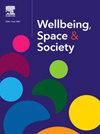通过支持基础设施促进向福祉经济迈进:对领先国家的回顾
IF 2.2
Q2 GEOGRAPHY
引用次数: 0
摘要
随着越来越多的政府寻求不再把国内生产总值(GDP)作为衡量进步的主要指标,“福祉经济”的概念得到了关注。这种方法通过更广泛、更全面的政策框架,优先考虑人类和环境福祉。这一转型的一个核心问题是,向福祉经济转型对基础设施投资意味着什么。在这项研究中,我们确定了四个领先的政府,不丹、苏格兰、新西兰和威尔士,它们正式采用了福利经济原则。我们分析了每个概念如何运作,并评估了对基础设施规划和投资的影响。尽管有共同的目标,但我们发现,在不同的背景下,幸福感的定义、衡量和制度化方式存在很大差异。我们的研究结果表明,在所有情况下,基础设施都发挥着至关重要的促进作用,特别是通过注重绿色转型、改善可达性和加强社会基础设施的举措。我们确定了八个反复出现的政策主题:脱碳和数字化、减少社会经济不平等、加强社会服务、实现循环经济、促进长期规划、推进绿色城市基础设施和改善住房。这些结果表明,围绕福祉目标重新调整基础设施政策可以支持更可持续、更公平的发展道路,为其他寻求类似转型的司法管辖区提供路线图。本文章由计算机程序翻译,如有差异,请以英文原文为准。
Facilitating the move towards a wellbeing economy through supporting infrastructure: A review of frontrunner countries
As more governments seek to shift beyond gross domestic product (GDP) as the dominant measure of progress, the concept of a “wellbeing economy” has gained traction. This approach prioritizes human and environmental wellbeing through broader, more holistic policy frameworks. A central question in this transition is what the implications of shifts to a wellbeing economy are for infrastructure investments. In this study, we identify four frontrunner governments, Bhutan, Scotland, New Zealand, and Wales, that have formally adopted wellbeing economy principles. We analyse how each operationalizes the concept and assess the resulting implications for infrastructure planning and investment. Despite shared goals, we find substantial variation in how wellbeing is defined, measured, and institutionalized across contexts. Our findings show that infrastructure plays a vital enabling role in all cases, particularly through initiatives focused on green transition, improved accessibility, and enhanced social infrastructure. We identify eight recurring policy themes: decarbonisation and digitisation, reducing socio-economic inequality, strengthening social services, enabling the circular economy, promoting long-term planning, advancing green urban infrastructure, and improving housing. These results suggest that reorienting infrastructure policy around wellbeing goals can support more sustainable and equitable development pathways, offering a roadmap for other jurisdictions pursuing similar transformations.
求助全文
通过发布文献求助,成功后即可免费获取论文全文。
去求助
来源期刊

Wellbeing Space and Society
Social Sciences-Social Sciences (miscellaneous)
CiteScore
2.70
自引率
0.00%
发文量
46
审稿时长
124 days
 求助内容:
求助内容: 应助结果提醒方式:
应助结果提醒方式:


